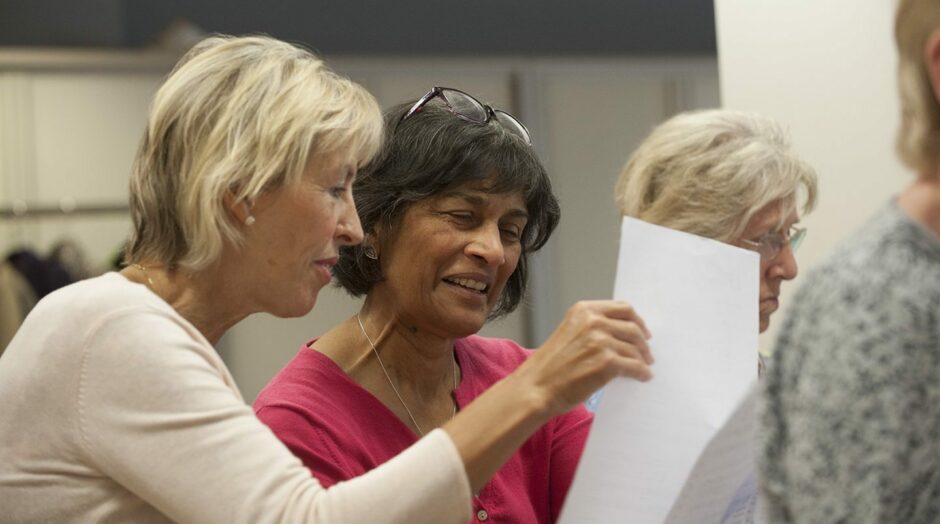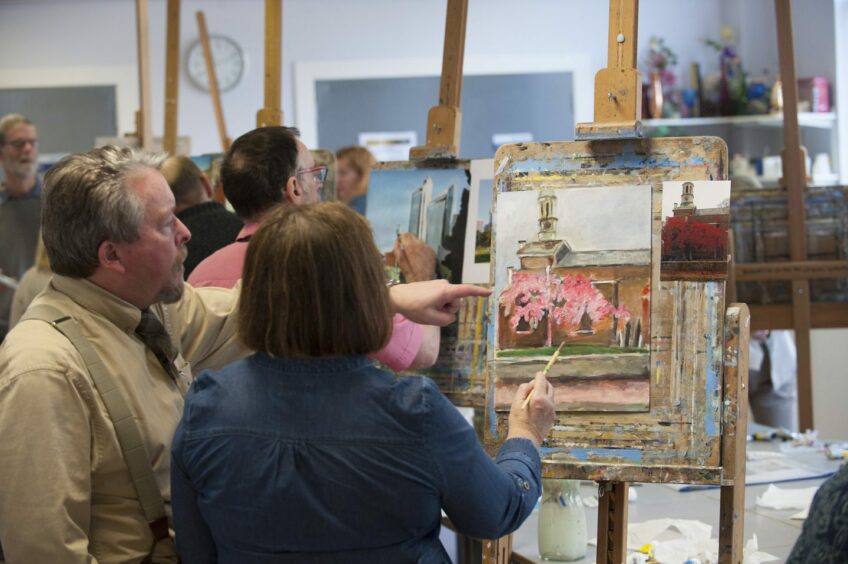
It’s easy to learn new skills when you are young – you have lots of time on your hands and not as many responsibilities. It can be difficult to find the time to learn new things as an adult, but Strathclyde University’s Centre of Lifelong Learning short courses for adults is making it much easier to reinvest in your own education and passions.
We all have that one interest we want to learn more about, or that skill we want to develop or even just sharpen up a bit. The desire to learn new things does not go away the older we get – if anything, it only gets stronger. Finding the time is one thing, but knowing how or where to turn to learn new skills can be a challenge in itself. That is where the Centre of Lifelong Learning comes in with their Learn 50+ at CLL.
-
Some Sunday Post online content is funded by outside parties. The revenue from this helps to sustain our independent news gathering. You will always know if you are reading paid-for material as it will be clearly labelled as “Partnership” on the site and on social media channels,
This can take two different forms.
“Presented by”
This means the content has been paid for and produced by the named advertiser.
“In partnership with”
This means the content has been paid for and approved by the named advertiser but written and edited by our own commercial content team.
What is Learn 50+ at CLL?
The centre has designed several short courses covering a variety of disciplines and skill, created with people over 50-years-old in mind who wish to revisit their education (although it is not required that you be over 50 to enrol). The University of Strathclyde is the only university that offers such short courses, meaning you can come along to their classes on campus in Glasgow or log on to their online courses and meet like-minded people who are interested in the same subjects you are.
The Centre for Lifelong Learning has something for everyone no matter your tastes or interests. There are short courses on languages, history, genealogy, art, and creative writing, amongst many others.
How do I attend short course classes?
The Centre have designed their 50+ courses to be flexible, so if you are able to come into the university’s campus in Glasgow, you will get the chance to learn in person and meet your fellow students face to face. This offers a wonderful social aspect of the course, which often extends outside of the classroom. If you join the Student Association, you can join a club affiliated with your course and immerse yourself even deeper in your chosen subject. For example, those learning Italian can join the Italian club, which often organises visits to Italian restaurants and Italian wine tasting events – and even occasionally organise the ultimate field trip to Italy itself!
If you are unable to make it onto campus but still want to learn, there is options for you too. The Centre of Lifelong Learning offers online only courses, allowing people from across the globe to also join their weekly classes. Whatever your preference or needs, there is a way for you to get involved with the Centre’s many short course options.
Why should I enrol in a short course class?
Community Engagement Manager Lynda Scott explained that for previous students, the courses allowed them to discover brand new things about themselves, and helped them build confidence in their skills and abilities.
She said: “We get a number of people that tell us, for example, that they were told at school that they were not any good at at drawing or painting, but decided to give it a chance again by taking up one of our art courses, and through that, they realise they have a talent that they didn’t know that they had. There have also been studies that show that language classes can help exercise the brain, and protect against diseases like dementia. Using your brain actively in older age is very good for your health.”
To learn more about The Centre of Lifelong Learning’s 50+ courses, visit The Centre of Lifelong Learning website.

Enjoy the convenience of having The Sunday Post delivered as a digital ePaper straight to your smartphone, tablet or computer.
Subscribe for only £5.49 a month and enjoy all the benefits of the printed paper as a digital replica.
Subscribe © Supplied by Strathclyde Universi
© Supplied by Strathclyde Universi © Supplied by Strathclyde Universi
© Supplied by Strathclyde Universi © Supplied by Strathclyde Universi
© Supplied by Strathclyde Universi